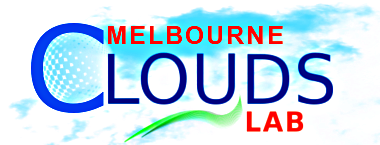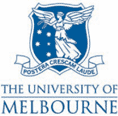The CLOUDS Lab Research Probes
The key objective of the CLOUDS Lab is to develop fundamental, next-generation cloud and grid technologies that support a true utility-driven service-oriented computing. Within CLOUDS Lab, the following research probes are being explored:
The iQuantum Project / Quantum Computing Efforts (from 2022)
The Federated Learning Efforts
The Fogbus Project / Edge and Fog Computing Efforts for IoT Apps (from 2016)
The Cloudbus Project / Cloud Computing Efforts (from 2008)
With the significant advances in Information and Communications Technology (ICT) over the last half century, there is an increasingly perceived vision that computing will one day be the 5th utility (after water, electricity, gas, and telephony). This computing utility, like all other four existing utilities, will provide the basic level of computing service that is considered essential to meet the everyday needs of the general community. To deliver this vision, a number of computing paradigms have been proposed, of which the latest one is known as Cloud computing. Cloud computing aims to enable the dynamic creation of next-generation Data Centers by assembling services of networked Virtual Machines so that users are able to access applications from anywhere in the world on demand.
Cloudbus is a new Melbourne's initiative in Cloud Computing for conducting fundamental research on the design and development of different market-oriented Cloud platforms for a range of applications. Melbourne CLOUDS Lab projects/programs in Cloud Computing include:
AI for Cloud Computing
Cloud Modelling and Simulation
- CloudSim: A toolkit for modeling and simulation of Cloud Computing environments.
Cloud Application Patform (CAP)
- Aneka: A cloud platform supporting multiple programing models in a .NET-based environement
Green Cloud Computing
Reliable Cloud Computing
- Cost-efficient Reliable Web Servers: (1) Autoscaling using Spot Instances in a Single Cloud Data Centre and (2) using Multiple Cloud Data Centres
Workflow Engine
Mobile Cloud Computing
Clouds-based Content Delivery Networks
Stream and Graph Processing
Additional Cloud Efforts
- OpenPEX: Virtual Machines Resource provisioning and execution system
- Cloud Federation and InterClouds: Supporting Application Scaling across multiple Data Centers
- Cloud Broker: Scheduling Applications across multiple Cloud Service Providers
The Gridbus Project / Grid Computing Efforts (mostly from 2002)
Grid Economy and Scheduling
- Economy Grid: the next-generation is in progress.
Data Grid Brokering and Scheduling
Workflow Scheduling and Grid Economy
Cooperative Coupling of Clusters
Service Level Agreements (SLA)-based Resource Allocation System
.NET Based Grid Computing
Grid Market Directory and Service Publication
- GMD and our own public GMD service
Grid Simulation (GridSim)
- GridSim Toolkit for modelling and simulation of scheduling for parallel and distributed systems
Resource Usage Accounting
Meta Search Engine and Web Services
- Guided Google paper, Software (war file and source code), and Search the Web Using our Guided Google
Web-based Grid Portals
- G-monitor paper, Software: source code, and Use pre-deployed Gmonitor portal with Nimrod-G
- Portlets based Grid Portal for Gridbus Broker
- Niggle Search: Niggle
Gridscape II: A Customisable and Pluggable Grid Monitoring Portal and its Integration with Google Maps
- Gridscape II. An example portal using Gridscape II (user/pass:gridscape/gridscape).
- The original Gridscape. An example portal generated using Gridscape





